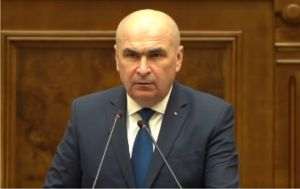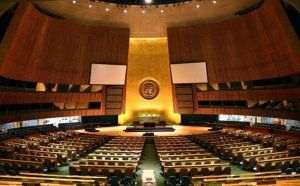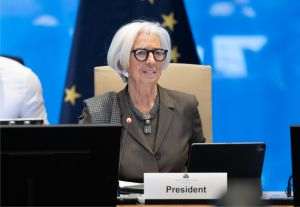• (Interview with Mircea Ursache, former president of ASF)
• "Listing of state-owned companies - the next challenge of our market"
• "It is time for the new government to issue a new law stipulating the formation of two distinct supervisory entities: one for the capital market and another for private insurance and pensions."
• "In the case of shareholders acting in concert at SIF Oltenia the natural thing to do for the ASF was to consult with the European authority"
Reporter: Starting in autumn next year, our capital market move into the category of secondary emerging markets following the decision of the FTSE Russell rating agency. Everyone is talking about the benefits and prospects that open up after this step. However, what are the challenges for our capital market, with the accession to the new level?
Mircea Ursache: The transition of our capital market to the emerging market status is the crowning of a process started in 2013 and represents the recognition by the international rating agencies of the profound transformations in the field of specific legislation and the efforts by everybody (regulator, market operator, central depository, issuers, brokerages, funds and financial investment companies).
The main challenge of the next period is the intention of the current government to list new state-owned companies, including CEC Bank and to rebuild from the ground up the legislation of a future sovereign investment fund.
Reporter: In the beginning of next year, Lucian Anghel, the president of the Bucharest Stock Exchange (BVB), will see the end of his second term. How do you evaluate his activity at the helm of BVB during his eight years in charge?
Mircea Ursache: The Bucharest Stock Exchange entered the process of accessing the emerging markets category under the management team consisting of the current president, who is nearing the end of his term, and the former CEO (ed. note: Ludwik Sobolewski), but who were more concerned with their own publicity, to the detriment of the specific objectives and, in particular, of the interest in attracting new issuers to the main market.
Moreover, he did not take advantage and unfairly failed to recognize the period when the Ponta Government, between 2013 and 2015, made the big listings in the economy, nor the wave of pro-European regulations that the Financial Oversight Authority (ASF) passed over that same period, creating the same conditions as in any European market.
Reporter: What are your expectations from Radu Hanga, the future president of the Stock Exchange?
Mircea Ursache: The new team from the Bucharest Stock Exchange enjoys undisputed trust, which must not be squandered. Both Radu Hanga and Adrian Tanase have the necessary expertise in the field.
Reporter: How do you assess the period of about one year since the new team of the Financial Supervisory Authority took charge of the institution?
Mircea Ursache: Where the new management of the BSE has the benefit of trust, unfortunately, not the same can be said about the current team in charge of the ASF.
There are many negative things that every entity in the market is criticizing them for:
- total lack of transparency in drafting regulations;
- the obstructing of the achieving of some major objectives (such as the case of the Central Counterparty - CCP)
- the subjectivity manifested in the process of authorizing the managers of the overseen companies, by going against the will of the shareholders;
- the unjustified spending on office expenses, bonuses or IT investments;
- the interference suspected of bias in the commercial lawsuits between market entities they were overseeing;
- the obedience towards the former government and parliamentary majority through the validation of draft laws (Emergency Government Ordinance no. 114/2018 is the best example, of which the liquidation of the 2nd pension pillar would have been devastating);
- serious shortcoming in professional ethics: the cowardice in hiding how the ASF Council members voted in the decision making or the manner of responding anonymously to accusations coming from market players, to avoid implicating the Authority in any way;
- the chaotic policy of hiring people without sufficient qualifications, usually in the shared branches of the organizational chart, people who only came recommended by the degree of kinship or friendship with the leaders of the former ruling party. What is very serious is the fact that the hiring process has resorted to transfers from the Fund for the Guarantee of Insurance Policy Holders (FGA);
Reporter: Leonardo Badea recently resigned as president of the ASF to become deputy governor of the National Bank of Romania (BNR), and the management of the ASF was taken over by Doina Dascălu. What are your comments on this change?
Mircea Ursache: The vacating of the position of president of the ASF by having its former president move to the NBR should raise alarms for the latter, as he was the one who undermined the entire institutional reform promoted and achieved by Mişu Negriţoiu, in his mandate as president of the Authority.
Today, the non-banking financial markets need a profound transformation, by implementing in Romania the European model for the organization of European regulators. As such, since the European Union has three supervisory entities (the EBA for the banking system, the ESMA for the capital market and the EIOPA for insurance and private pensions), it is time for the new government to regulate the non-bank financial market through a law which would create two distinct supervisory entities: one for the capital market and another for private insurance and pensions.
Reporter: Recently, the draft law on the regulation of Alternative Investment Funds (FIA) which provides, among other things, the elimination of the holding limits at the SIFs was approved by the Chamber of Deputies, which is the decision maker. How will the activity of the SIFs be influenced by the elimination of the threshold?
Mircea Ursache: The recent approval by the Romanian Parliament of the draft Law on Alternative Investment Funds represents the last obligation assumed by the ASF in 2014 through the STEAM program.
Basically, today we can talk about a whole new approach to the legislation concerning the capital market.
However, the initial version of the draft law submitted in 2018 has undergone numerous changes (547 amendments), which raises suspicion and mistrust. These amendments passed by the ASF and assumed as a whole by a parliamentary party represent an example of how the Authority's proposals that have not been subjected to public debates should not be taken into account.
I would like to reiterate the position I have expressed on numerous occasions regarding the holding limits in the SIFs: I have never asked for their removal, but for the adoption of an article providing for the replacement of the 5% holding restriction, with the decision of the general shareholder meetings of each SIF on whether that holding limit should exist or how big it should be, if it were to exist. Therefore, I think argument can be made that the law should be rejected (ed. note: by President Klaus Iohannis) in its current form.
Reporter: The Dolj County Court approved the request of SIF Banat-Crişana (SIF1) and SIF Muntenia (SIF4) for the summoning of the general shareholder meeting of SIF Oltenia (SIF5), in order to remove Tudor Ciurezu and other directors from SIF5, after the Board of the Craiova-based SIF repeatedly refused to summon a general shareholder meeting. In May, at the request of the same two SIFs, the shareholders of SIF Oltenia approved the amendment of the articles of incorporation of the company, with a series of provisions that restrict the decision-making powers of Tudor Ciurezu, a move which he described as a hostile takeover attempt at SIF Oltenia. On the other hand, SIF1 and SIF4 accuse Tudor Ciurezu of a lack of transparency in his management of SIF5. What is your opinion on that? What should the position of the Financial Supervisory Authority?
Mircea Ursache: In relation to disputes and lawsuits between groups of shareholders of the various financial investment companies, I would like to adamantly say that it is not normal for me to give my opinion, and the solution for those problems lies solely with those parties involved.
All the more so, those in the ASF Council were not allowed to intervene in a biased manner. I think what is happening now between various groups of shareholders at the SIFs is the responsibility of other state institutions, and all the more so when we consider the reasons why the Board of the ASF intervened in these lawsuits.
Reporter: Just before the SIF5 shareholders' meeting in May, the leader of the Craiova-based SIF claimed that, in fact, SIF1 and SIF4 control about 28% of SIF Oltenia, above the legal cap of 5%, together with a number closed funds, an acting in concert which was not confirmed by the ASF. What is your opinion in that regard?
Mircea Ursache: The issue of acting in concert has been the subject of numerous discussions over time, including at the level of the European regulator. Therefore, I think that in the case of the acting in concert reported at SIF Oltenia, it would have been normal for the ASF to consult the European authority before deciding. Otherwise, the same suspicion remains.
It is unnatural to see that the ASF practices the model of the former political power, of rejecting the European model and practice, in parallel with the loss of the Authority's independence from the political power which, in many cases, even the members of the ASF Council (including a vice-president) have obeyed to blindly in the drafting of some regulations which were detrimental to the non-banking financial markets.
Reporter: Thank you!

















































1. fără titlu
(message sent by Petre on 20.12.2019, 18:17)
Mircea Ursache, cred ca tu esti cel mai preocupat de propria publicitate. Ai vrea inapoi la ASF, nu-i asa? Nu te mai milogi, mai omule, ca ai mai trecut odata pe acolo si nu ai facut nimic. Te-am urmarit in ultimul timp cum faci tot posibilul sa atragi atentia asupra ta, poate, poate te vor desemna pe tine sef la ASF. Chiar crezi ca ti se cuvine aceasta functie? Stai linistit, este cam mare palaria pentru tine, ai dovedit-o cu prisosinta in mandatul trecut.